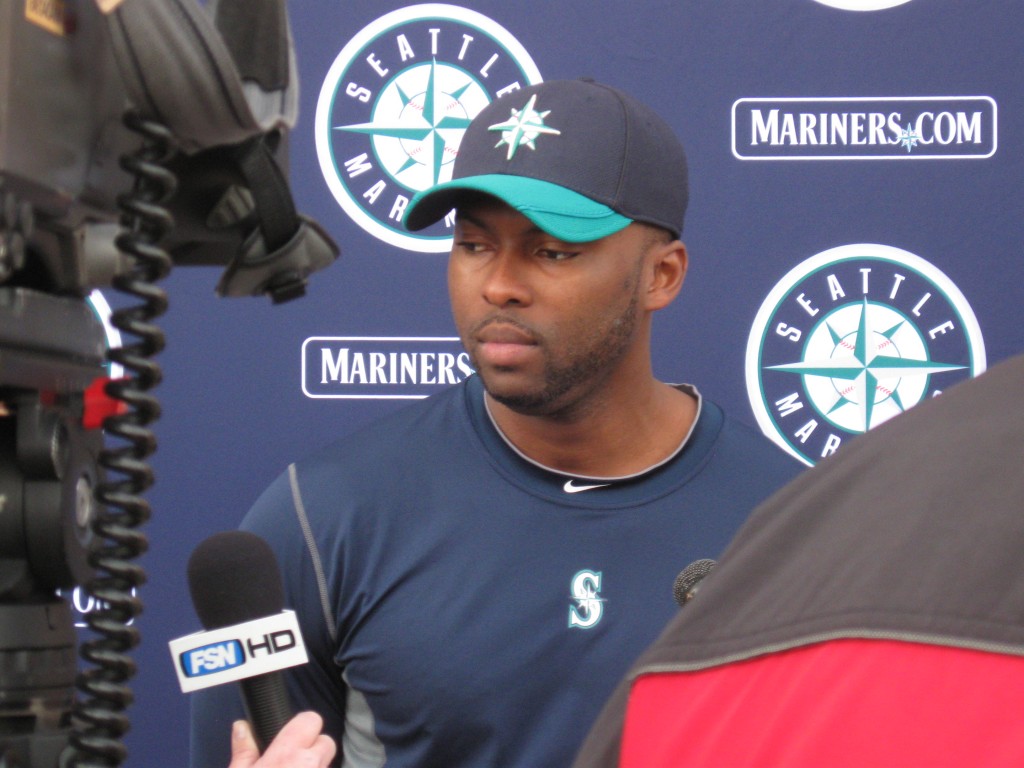We’re exaggerating, but not egregiously. We recently received an email from a reader named Milton (a real email, not one we concocted to create a mailbag with.) He understandably requested anonymity, but here’s the gist of it:
I’ve been enjoying your blog since I discovered it (via the Simple Dollar– talk about a fortunate turn of events) and am reading through all of the entries (having already read your ebook… twice). I read the one about the site Digging Out From Our Mess, [NB: A site we’ve lambasted on here, and for good reason] and clicked the link to their site. Based on their About page and updated totals, in almost exactly three years they’ve managed to reduce their debt load by a whopping NEGATIVE $281.39. I found CYC after I’d already started my own deprogramming and had eliminated my debts, and have begun investing and building wealth. But even at my worst (read: dumbest) I don’t think I was this bad at personal finance. At the very least, I didn’t think it was a good idea to trumpet my ignorance to the web-surfing world.
300 million more like him, and this country could be a superpower again. We asked Milton to explain how he – a presumably ordinary cat with the same hopes and desires as most of us – started building wealth and this is what he had to say:
I live and work in New York City. I’m the IT Manager for a mid-sized engineering firm. I’ll be 44 in about two weeks, and am single with no children. I have three sisters and no brothers. My parents were born in Puerto Rico and came to the mainland US in their late teens.
You refer to your own “deprogramming”, which implies that the old you thought it was awesome to incur debts and not care. Is that accurate?
Yes. We grew up poor and didn’t learn about money and finances. Like everyone else I know, my parents didn’t teach us about money. My father never learned English and worked at menial jobs his whole life, squandering what little money was left after expenses. My mother stayed home with us and did what she could with what little we had and didn’t build up any savings.
God, how depressing. And how typical, to think that life’s purpose is misery. It was a common belief in Milton’s father’s generation and those previous, and still a fairly common one today. (That’s a comment about the menial job, not a joke about having 4 kids.)
It wasn’t all bad. Among the lucky breaks were that I did not go to college and avoided many of the pitfalls of growing up in an impoverished area. I’ve never used tobacco or illegal drugs, I rarely drink and I don’t gamble. After jumping from one job to another for about 3 years, I settled into my current job and within 8 years had been promoted from mail clerk to computer specialist. At 29 I was making more than twice as much money as my father had ever made (adjusted for inflation). Even my financial ignorance had a bright side. Thanks to my mother’s distrust of credit and debt, I didn’t get my first credit card until I was 27. I was debt-free and had a $1,000 line of credit. So there I was, making good money with only a few monthly expenses. Just like Dad, I’d spend whatever was left after the bills were paid. Unlike Dad, I had a LOT of disposable income to dispose of. Computers, home electronics, art supplies, novelty gadgets, exercise equipment… anything that caught my eye was as good as purchased. I had the money, why not enjoy it? As my credit limits rose so did my spending and my interest rates (up to 29.99% at times). I funded my 401(k), but only about 1/3rd of the maximum. At some point I had actually set up my withholding so that I was only getting back a relatively small refund each year, which I then dumped into a savings account that was earning .3%. I’m not the sort to spend much time looking back at what cannot be changed, but I cringe whenever I think of where I could be today if I’d had a better understanding of money when I was young.
Of all the dumb things to do (and we all do dumb things), Milton picked some of the least dumb ones. The standard vices aren’t just of dubious morality, they’re expensive. Fortunately, the ones he picked were easy to fix: if you want a greater 401(k) contribution, contribute more to your 401(k).
What made you see the light?
I think that getting older and paying more attention to finances is what woke me up. I was getting to that age where you start to think about retirement options, and I also realized that I was paying around $750-800 a month in finance charges on my credit card debt. Gads, it makes me ill to think about that again. After a couple of aborted attempts, I managed to wipe out around $24,500 of debt in around 18 months (helped in large part by the $12,000 that was sitting in that savings account… sigh). A few months after that, I finally stopped wasting money and started building up my savings (Trent would’ve been proud of my emergency fund). Happily, it was around that time that I found your site and finally began to understand how it is that I could make my money work for me instead of the other way around.
Milton emphasized his point with a sigh, so we won’t pile on, but you see what he did there? Every personal finance site in existence tells its audience to “create an emergency fund“, which is horrible and self-defeating advice. Why? Because it implies that you’re not in an emergency right now. Milton was, and didn’t realize that having a debt load twice the size of your savings counts as an emergency. (Nor did he realize, at least not immediately, that there’s a way to halve said debt load which is so easy that it’s easy to miss.)
How have you begun investing and building wealth? That is, what have you invested in (beyond the stuff you were investing in before, like 401[k]s and stuff)?
I am fully funding my 401(k) now and paying attention to where my 401(k) funds are allocated. I opened an account with Vanguard and put some of my savings in a mutual fund and the rest into a brokerage fund. I’m invested in ETFs and a bond fund (specifically, VTI VNQ VXUS and BND). When my profit-sharing bonus comes in at the end of the year I am planning to invest in a few stocks as well. I will be looking for stable and profitable companies with good fundamentals. I plan to try my hand at real estate within a year or two. I’m hoping that the housing market and interest rates stay depressed for a few more years. (NB: Douche.) I have vivid dreams of owning multiple homes on 15-year fixed-rate 2.95% mortgages that I can pay with spare cash (deep breaths… deeeeep breaths…). It’s a challenge for me to do something risky, but it’s too good an opportunity to pass up. I live in a co-op and do not want to buy a house in New York City; I am researching locations where I can get a good deal on a modest house in a good area. I have other plans that involve comic book artwork (which I dabbled with in the ’90s) and I might see returns from that sooner. At worst, it will provide some extra money that can go 100% towards wealth-building. If the stars align, this plus a few rental properties might allow me to retire early. And of course, I pay all of my credit card balances in full every month. (Italics ours, not that they were needed.)
How much time do you spend on this?
Too much, because I started investing 2 months ago and I’m still at that anxious stage. I’ve already gotten it down from checking my finances several times a day to 3 or 4 times a week. By the end of the year I should have that down to once a month. Long-term, I intend to stay on a once-a-month schedule for my investment accounts and a quarterly schedule for my 401(k).
Is there any advice you’d give people who are just discovering CYC for the first time? Like, what recommendation worked better for you than you thought it would? (Or what would you avoid?)
The most useful thing would be to follow your advice about removing emotion from the equation. I imagine that a lot of people who read your site become indignant at the implication that they’re doing a lousy job of managing their finances (and in some cases, their lives). A defensive attitude is an obstacle that can derail their attempts to get their finances (and lives) in order. It may sting to be told that what you’re doing is stupid, but the sooner you realize that what you’re doing IS stupid the sooner you can stop doing that and start doing something smart. The best advice in the world won’t do any good to a person who leaves in a huff because they think failure should be rewarded with a pat on the back.
Couldn’t have said it better ourselves. Although we did say it differently, in the footer: This is personal finance for people who want results, not coddling. Milton’s doing fine (repeat: fine) and there’s no reason why you can’t, either. He didn’t grow up with any inherent advantages, obviously. The closest thing he had to one was his abstemious mother and her example. On balance, that’s a lot to compensate for a diligent if financially unsavvy father, in a house with 6 hungry maws, where English wasn’t even the first language. To recap, and this couldn’t be simpler if we used puppet theater:
- Don’t flush money down the toilet (drugs, alcohol, gambling.)
- Fund your 401(k) to the max, and get the matching funds. Free money.
- Treat consumer debt with aggressive therapy, i.e. living ascetically until the debt’s all gone. The occasional “splurge” defeats the purpose, and keeps you poor longer, if that’s what you’re into.
- Then, once and only once that’s done, can you start investing. Investing, not speculating. Speculation is for rich people. The aspiring don’t have that luxury: they need to build wealth methodically before building it in riskier ways.
What else should Milton do? He’s on a smarter path than the vast majority of people. He needs to spend less time checking his investments, but he acknowledges as much. We can blame that on how new he is to investing. It’s like when a formerly sedentary person develops and commits to an exercise-and-diet routine. Once you do, it’s only natural to weigh and measure yourself abnormally frequently. Then, when the pounds and inches start falling off more slowly (because you’re getting closer to perfection, and thus there’s less room for rapid improvement), you eventually start checking the numbers less and less often. Milton bought assets, sold liabilities, and is now enjoying the inevitable increase in wealth that follows. Spend your money on things that further your wealth, don’t spend it on things that don’t, and you’ll get rich no matter how otherwise stupid or lazy you are. It never fails. You don’t even have to be smart like Milton.





